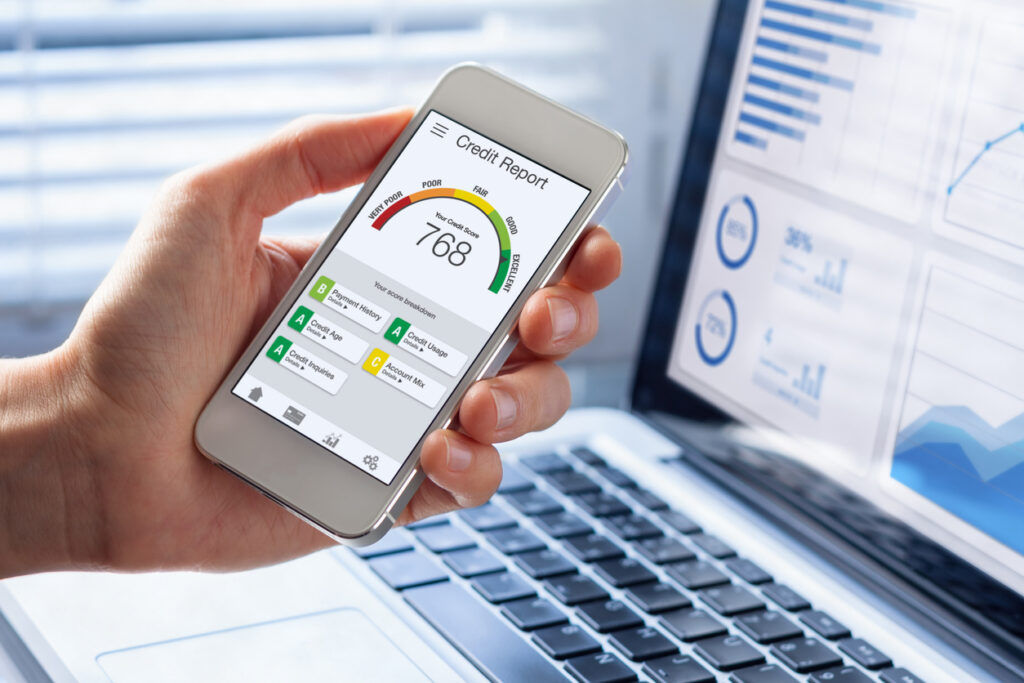Why Your Credit Score Matters More Than You Think
“From home buying to your current relationship, your credit score matters and might impact you more than you realize,” says expert real estate agent Karen Randels. Discover all the ways your credit score impacts you and what you can do to improve it.

We’ve all heard about the importance of having a “good credit score.” But for many people, that’s where the conversation ends, but it’s a lot more than just a 3 digit number. Your credit score affects more aspects of your life than you may realize—from where you live to what you drive, and even the job you get. If you think your credit score only matters when buying a house or applying for a credit card, it’s time to think again.
Let’s explore why your credit score matters more than you think and how you can take control of it.
What Is a Credit Score?
Your credit score is a three-digit number that represents how likely you are to repay borrowed money. Scores typically range from 300 to 850. The higher the number, the better your credit.
The most commonly used score is the FICO Score, which is based on five factors:
- Payment History (35%)
- Amounts Owed (30%)
- Length of Credit History (15%)
- New Credit (10%)
- Credit Mix (10%)
Think of your score as a financial report card. Lenders, landlords, insurers, and even some employers use it to gauge how responsible and reliable you are with money.
Though the FICO score is the most common, especially for mortgages, there are other models that different industries and creditors use, so scores may vary from slightly to drastically depending on the model used.
Why Your Credit Score Matters More Than You Think
1. Homeownership
Let’s start with the obvious: buying a home. Your credit score directly impacts your ability to qualify for a mortgage, and at what interest rate.
- A credit score of 760 or higher could get you the best rates.
- A score under 620 might keep you out of the market altogether or subject you to high-interest or subprime loans.
Even a small difference in interest rates can cost you tens of thousands of dollars over the life of a loan.
Example: On a $250,000 mortgage, a 1% interest rate difference could mean more than $50,000 extra paid over 30 years.
>>LEARN: What credit score is needed to buy a house?
2. Renting a Home or Apartment
Think renting saves you from credit checks? Not so fast.
Landlords often run credit reports before approving your rental application. A poor score could mean:
- Being passed over for more desirable properties
- Higher security deposits
- Needing a co-signer just to sign a lease
In competitive rental markets, your credit score matters and might be the tie-breaker between you and another applicant.
3. Lower Interest Rates and More Credit Options
The higher your credit score, the more favorable terms you’ll receive—not just for home loans, but also for:
- Car loans
- Credit cards
- Personal loans
- Business financing
With a good credit score, you might qualify for 0% introductory APRs, cashback rewards, or auto loans with no down payment. With a poor score? You may be stuck with double-digit interest rates or be denied altogether.
4. Employment Opportunities
That’s right–some employers check credit reports as part of the hiring process, especially for jobs involving money or sensitive information.
A poor credit history could be interpreted as irresponsibility or financial distress. While not all employers do this, and some states limit it, it’s a factor worth noting, especially in finance, government, and management roles.
5. Insurance Premiums
Auto and home insurance companies often use a version of your credit score—called a credit-based insurance score—to set premiums. Even if you have a spotless driving record, poor credit can cause your rates to skyrocket.
Some studies show drivers with poor credit pay 30% to 70% more in insurance premiums than those with excellent credit.
6. Utility and Cell Phone Services
Moving into a new place or switching phone providers? They’ll likely check your credit. A lower score can lead to:
- Higher deposits on utilities like water, electricity, or gas
- Prepaid phone plans instead of postpaid services
- Even being denied service in rare cases
7. Relationship Compatibility
Money can be a major stressor in relationships, and differing credit scores and financial habits can be a red flag. When couples apply for joint financing (for a house, car, or even a shared credit card), the lower credit score usually determines the terms.
A “credit talk” may not be romantic, but it’s necessary. Understanding your partner’s credit profile can help avoid future tension and plan wisely.

How to Improve Your Credit Score
If your credit score isn’t where you want it to be, don’t worry—it’s fixable. Here are a few steps to get started with improving your credit score:
1. Pay Bills on Time
Your payment history makes up 35% of your score. Automate payments or set reminders to avoid late fees.
2. Keep Credit Utilization Low
Try to use less than 50% of your total available credit. Paying off balances or asking for higher credit limits can help.
3. Avoid Opening Too Many Accounts
Each hard inquiry can drop your score slightly. Space out applications for credit.
>>MORE: Should I wait to increase my credit score before buying a house?
4. Don’t Close Old Accounts
A longer credit history helps your score, even if you don’t use the account often.
5. Check Your Credit Reports
Visit AnnualCreditReport.com to get a free copy from each bureau each year. You can dispute incorrect accounts right there at each of the 3 major credit bureaus: Equifax, TransUnion & Experian.

The Bigger Picture
Your credit score isn’t just a number—it’s a reflection of your financial habits, decision-making, and reliability. Whether you’re trying to buy a home, finance a car, get a new job, or simply rent a decent apartment, your score is silently shaping your options.
That’s why it’s essential to understand it, monitor it, and make conscious choices that support it.
Final Thoughts
Your credit score is like a passport to financial opportunity—or a wall that keeps you from it. I’ve always said, regardless of your job/income status, if you have a good credit score, you have the world in the palm of your hands.
The good news? You’re in control. Every on-time payment, every balance you lower, every smart decision you make moves the needle in the right direction.
Don’t let this powerful number catch you off guard. Whether you’re 18 or 80, building credit or rebuilding, it’s never too early—or too late—to take it seriously.
>>DISCOVER: How to Buy a House with Bad Credit, but Good Income.





